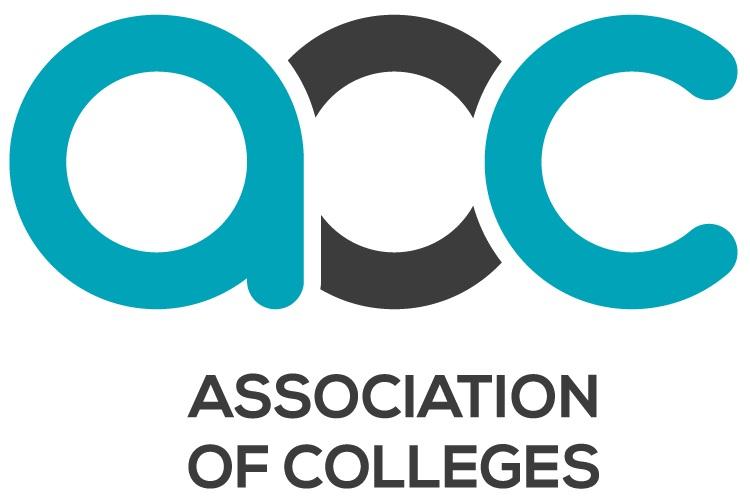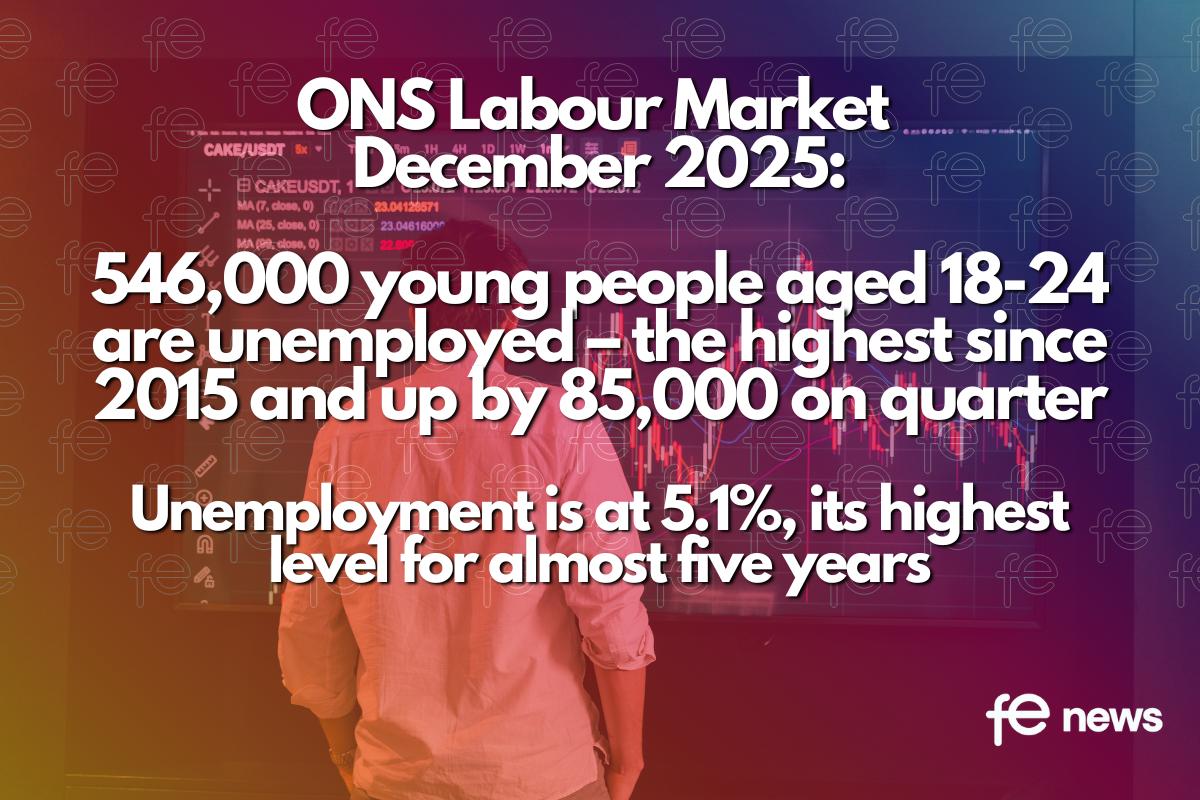Colleges could lose up to £1million per month if temporary closures for coronavirus were enforced without financial support from the Government

David Hughes (@AoCDavidH) writes to @GavinWilliamson as the financial situation for #colleges looks set to worsen if institutions shut due to #COVID19
Today (17 Mar), Association of Colleges’ Chief Executive David Hughes (@AoCDavidH) has written to the Education Secretary @GavinWilliamson as the financial situation for #colleges looks set to worsen if institutions are shut across the country due to #COVID19
Students and staff safety and health is of the upmost importance during this worrying time, but very few institutions will be able to cope without Government support. Attached is the open letter sent to the Secretary of State, Gavin Williamson and his ministers this morning. Below I have relayed our asks for ease.
AoC is calling on the government for clear assurances and requests which are now extremely urgent:
- Funding: Colleges seek assurance that Adult Education Budget (AEB), study programme, apprenticeship and other DfE/ESFA income, wherever possible, can be guaranteed for the coming months;
- Emergency financial support: AoC are asking DfE/ESFA to provide simple, rapid and clear routes for colleges to be able to seek and secure cashflow support. Colleges with low cash balances, large student fee income or employer-funded training will be at particular risk;
- Temporary closures: In the absence of an instruction from the Government for all colleges to close, college leaders seek assurance that they will be supported in any local decisions to close a college or a campus which are taken in the light of the circumstances. These will include high numbers of staff in social isolation or in vulnerable categories who require social distancing; or outbreaks of the virus amongst staff and/or students; advice from Public Health England and so on. Given the nature of colleges, any temporary closures are likely to be time-limited and partial.
- Regulation: The decision by Ofsted to suspend all inspections is welcome, and should be followed swiftly by assurances that data, performance
We need quick announcements which allow college leaders to make the right decisions for their communities, students and staff, safe in the knowledge that the DfE and ESFA will support them through this crisis.
Letter in Full

Rt Hon Gavin Williamson MP
Secretary of State for Education
Department for Education
20 Great Smith Street
London, SWIP 3BT
17 March 2020
Dear Secretary of State
Colleges and COVID-19
I am writing with information about the impact of COVID-19 on colleges, their students and staff and with a list of urgent requests. College leaders are seeking certainty about how they should respond and for assurances of financial support as a matter of urgency.
We are working with your officials on this matter, but I thought it would be useful to put the issues together into a single letter.
Every college is implementing its emergency planning procedures, working to the Government’s advice, monitoring staff and student illnesses and absences and making decisions which are right for their circumstances. It is difficult to put an accurate figure on the financial impact, but it would be fair to suggest that an average college might lose between £500k and £1million per month of temporary closure or reduced capacity; very few, if any, will be able to cope without Government support.
They are acting responsibly, working hard to support the safety and security of their students, but seek assurances and requests which are now very urgent:
- Funding: Colleges seek assurance that Adult Education Budget (AEB), study programme, apprenticeship and other DfE/ESFA income, wherever possible, can be guaranteed for the coming months;
- Emergency financial support: AoC are asking DfE/ESFA to provide simple, rapid and clear routes for colleges to be able to seek and secure cashflow support. Colleges with low cash balances, large student fee income or employer-funded training will be at particular risk;
- Temporary closures: In the absence of an instruction from the Government for all colleges to close, college leaders seek assurance that they will be supported in any local decisions to close a college or a campus which are taken in the light of the circumstances. These will include high numbers of staff in social isolation or in vulnerable categories who require social distancing; or outbreaks of the virus amongst staff and/or students; advice from Public Health England and so on. Given the nature of colleges, any temporary closures are likely to be time-limited and partial.
- Regulation: The decision by Ofsted to suspend all inspections is welcome, and should be followed swiftly by assurances that data, performance tables, targets and the like will also be suspended for the next few
As many colleges face up to tough decisions about closing their colleges, it may be sensible to discuss a longer Easter shutdown, starting early and/or carrying on for longer to allow for colleges to protect core services and to ready themselves for what looks likely to be a long haul.
I appreciate that this is a difficult time for everyone, including the Government, but I look forward to some quick announcements which allow college leaders to make the right decisions for their communities, students and staff, safe in the knowledge that the DfE and ESFA will support them through this crisis. At times like this we need to provide as much assurance as we can to people at the sharp end to be able to make decisions quickly, often with limited information, safe in the knowledge that they will be judged for their best intentions, not for any mistakes they might make.
Yours Sincerely,
David Hughes,
Chief Executive, Association of Colleges
CC:
- Gillian Keegan MP, Parliamentary Under-Secretary of State for Apprenticeships and Skills Michelle Donelan MP, Minister of State for Universities and Science
- Emma Hardy MP, Shadow Minister for Further Education and Higher Education Robert Halfon MP, Chair Education Select Committee
- Paul Kett, Director General at the Department for Education (DfE)
- Eileen Milner, Chief Executive and Accounting Officer of the Education and Skills Funding Agency AoC Members
Colleges and Covid-19
1. Keeping colleges open
The priority for colleges has been and is to stay open to ensure that their students continue to be supported.
This will be increasingly difficult given:
- the likelihood of more temporary closures associated with positive tests on students or staff.
- staff absence as a result of illness, self-isolation and the Monday 16th advice on household isolation. Many staff fall into the vulnerable category due to other health conditions. We had reports of 10% absence levels from some colleges on Monday 16th.
- education technology and online learning is less developed in colleges than in schools and universities. Many subjects involve a lot of practical learning, which is hard to replicate. Colleges themselves have lacked the funds to invest in this area. Meanwhile some college students may not have access to the necessary broadband and IT kit to learn at home. Ofcom research shows that 8% of 16-to-34 year olds have no access to the internet at home.
For colleges we are most worried about the impact on vulnerable and high-needs students for whom colleges are both a safe space and the best environment for them to learn and to succeed.
Every college has been making contingency and staff plans which involve partial shutdowns to keep essential activities going. Some colleges with farms and residential accommodation will never be able to wholly close.
Events have moved fast and are catching people unawares. In order to make sensible decisions about what to do next, college leaders will need certain information from DfE, ESFA and other regulators.
2. Short-term temporary closure
A small number of colleges had to close last week or on Monday 16th on Public Health England instructions following positive test cases. The escalation in the number of cases means that the number of short-term temporary closures is likely to increase in number.
We have raised with the Education and Skills Funding Agency (ESFA) the need to have clear protocols on communicating temporary closures to match the process that the Office for Students (OfS) has introduced for other registered higher education providers.
Those colleges that have closed have found it very difficult to secure cleaning services meeting Public Health England standards.
3. Exams and assessments
Colleges offer qualifications for about 20 exam boards and each have thousands of students taking assessments in the next four months. These include A-levels, GCSEs, external assessments in BTECs, City and Guilds and a range of other subjects. If there are any restrictions on mass gatherings in the summer then many colleges will not be able to accommodate the often more than 1,000 students taking English and maths resits in single sessions in early June. We know that Ofqual is working with awarding bodies on options for individual qualifications but there is rising anxiety from students and staff about the lack of information on this issue.
A further concern is about the knock-on effects of decisions about GCSEs on those starting sixth form or other post-16 options in September 2020. Unlike in higher education, there is no central body like UCAS to manage this process. Planning needs to start soon to minimise the impact of any delay or disruption to GCSEs.
4. Vulnerable students/ safeguarding
There are a number of groups of vulnerable students in colleges who we are particularly worried about:
- Students with Education Health and Care Plans
- Young carers within their 16 to 18 cohort with caring responsibilities for parents/grandparents/siblings.
- Looked after children in their care; ensuring they have a safe place to learn and protecting their well-being is a
- Students receiving bursaries and childcare payments who rely on this money to support themselves and their families – we want to continue these payments even if colleges
5. Free college meals
The average college has several hundred 16-to-18 year olds receiving free college meals. Colleges want to ensure they can have access to a regular meal. It would help if there was a relaxation or change in the rules. These currently require the meal to be provided free of charge or for a voucher to be given to the student which they redeem on-site or off-site with nearby food outlets. The rules make it difficult for almost all colleges to make cash payments. In the current circumstances it would help to change this.
6. Student attendance
We have discussed the statutory requirements relating to college attendance with officials. There are some issues relating to under 16 year olds enrolled at college, high need students (with an EHCP) and international students (with a Tier 4 visa) but the most important thing for DfE to do is to introduce new exceptional categories in its rules.
Health policy requires college students to stay at home if they or their families have symptoms but current FE policy uses attendance to drive funding in all ESFA funding streams (16-to-18, adult education, apprenticeships etc). Meanwhile colleges are judged in DFE’s performance tables and in inspections on their success in minimising absence and maximising retention.
There are already signs of rising student absence, early ending of work experience placements, employers cancelling training and redeploying apprentices. Government’s new social distancing advice published on 16 March will cause further reductions in attendance.
As a first start DFE needs to introduce new rules and data definitions for Cov-19 related- absence to underpin other necessary changes.
7. Apprenticeships
Apprenticeships are at particular risk because so many businesses and public services are under pressure yet, as employers, are central to the training and support of apprentices. While employers in sectors like the NHS and other essential services are working overtime, other sectors like hospitality and travel are in meltdown. ESFA’s recent acceptance that colleges and training providers can record self-isolation as a break in learning is helpful but the anticipated level of absence from work in the next few months will shred apprenticeship activity, performance, training income and the ability of colleges to sustain provision.
8. Adult education
College adult education provision provides a necessary social and economic purpose but it will prove very hard to maintain classes between now and the end of the year. Colleges have funding removed if their activity falls below 97% of allocation but have reported to us a reasonable worst case scenario (no future enrolments, attendance and achievement falls by 50%) that they will deliver as little as 80%.
These estimates were given to us before the social distancing guidance which could result in the effective suspension of most courses. DfE has an interest in maintaining college capacity to support people and businesses with the recovery in 2020-1 and to develop the national skills programme. If there is no DfE action on this side, then this will accelerate college decisions to make redundancies and eliminate unprofitable courses or sites while increasing the risk of banking covenant breaches and emergency support applications.
Now that almost 50% of the adult education budget is devolved to 7 combined authorities, any rule changes should be consistent and clearly communicated.
9. Higher education
A number of universities have publicly announced plans to move to online teaching which is a move that was criticised by the Office for Students in a message sent to the 168 OfS-registered colleges on 16 March 2020 quoting Public Health England as “having not advised against face-to-face teaching”. Later that day the government published social distancing advice that creates a new presumption in favour of online learning.
10. Industry placements
A number of colleges report that employers are asking students not to attend placements due to health concerns or partial shutdowns. DfE needs to confirm what messages colleges should heed in this situation and allow alternative arrangements to avoid funding clawbacks. Colleges are choosing, quite rightly, to stop sending students to some work placements, such as care homes where they present a risk to the elderly. In some programmes, for example childcare, placements are already a part of the student’s qualification so an Ofqual intervention will be required.
11. Cashflow, bank covenants and exceptional financial support
Colleges are predominantly publicly-funded which reflects various government policies including the funding of education so that it is free for those age under 19 or who are low paid or unemployed and taking nationally accredited courses. This means that assurances on income from ESFA will help many remain solvent.
However some colleges generate a significant amount of fees and other income from companies, UK nationals and international students. The disruption to courses and enrolments described above applies equally to these non-governmental sources of income – with specific problems when it comes to international students (export income) because of travel disruption. In some cases, this loss of income will be significant.
Colleges have found that their insurance policies are no use in covering income losses or higher costs. All the insurance companies used by colleges sold policies that restricted cover to named diseases which will not cover Cov-19. Colleges are unable to access DfE’s Risk Protection Assurance scheme for academies.
The lack of insurance cover for reduced income comes in a year (2019-20) which was already widely understood to be the worst year financially for a sector which has had a decade of neglect and a demographic low point (ie low number of 16-18 year olds). The 30 per cent funding cut over the last decade has left most colleges with insufficient reserves and cash to cope with the financial hit. 90% of FE colleges and 50% of sixth form colleges have long-term bank loans from a small number of banks. It is likely that some colleges will break the bank covenants because of this financial hit.
12. Education technology
DfE is working with JISC and other organisations on educational and technical solutions to support online learning. There will need to be an increase in guidance to assist teaching and training staff to make the shift to online learning. This is not a simple like-for-like replacement. The model is probably short content followed by self led activities where this can be done. It is not easy for large areas of technical education.
DfE should also work with other government departments to secure better broadband access and mobile data packages to allow for equal access.
13. Preparation for T Levels and Institutes of Technology
Some on-going developments in colleges will be delayed while colleges have to prioritise staying open to support current students. It would be helpful to set up virtual networking opportunities for good practice sharing/questions over the next few months to replace face- to-face meetings.
14. Student trips and Erasmus+ exchanges
Travel restrictions have already cut a swathe through student trips and Erasmus+ exchanges. The long-term future of the UK will require an outward looking population.
15. Ofsted inspections, funding audits and FE commissioner assessments
Ofsted has helpfully announced the suspension of all inspections. There are, however, a range of other visits and assessments to colleges by the FEC and ESFA officials which have been used in recent years to diagnose problems, attribute faults and work out solutions. College leaders will need to feel that they will be supported in the decisions they take.
17. DfE performance tables
The same point applies to DfE’s performance tables. Whatever else we know, it is already clear that 2019-20 is an exceptional year. English FE is a data-driven sector so early assurance of the suspension of performance tables for this year would be welcomed.
18. Student contracts
Students have rights under the 2015 Consumer Rights Act which the Office for Students monitors. DfE – and OfS I’d hope – would want to avoid a situation in which institutions refused a request to close or move students for fear of legal action.
19. Other issues
There will be other issues not covered fully in this letter. College leaders have been communicating issues via DfE’s coronavirus helpline, to ESFA territorial teams and via other channels including AoC. There may be a case for a more structured channel of communications on insitution-level decisions.











Responses